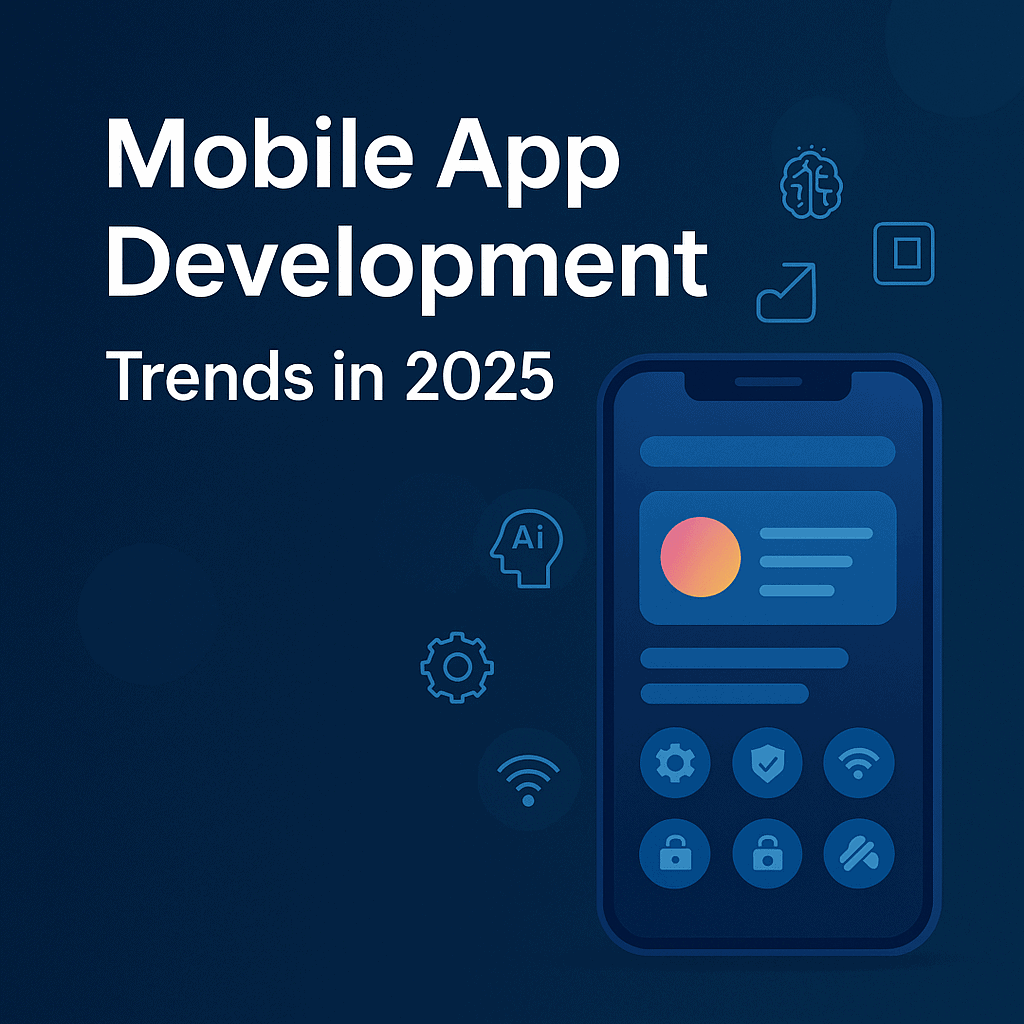
In today’s hyper-connected world, mobile app development services are evolving faster than ever to meet rising user expectations and business demands. Companies need to adjust their operations swiftly because smartphones have become everyday life anchors for delivering products with high speed, security, and personalized features. Organizations that aim to develop or upgrade their digital footprint through internal systems and consumer applications should focus on this aspect.
The process of mobile expansion or mobile app developer selection in Michigan demands active awareness of upcoming trends. For those who are considering expanding their mobile presence or planning to hire a mobile app developer in Michigan, staying on top of these emerging trends is crucial. In 2025, mobile app development is all about personalization, automation, and scalability with a stronger focus on performance and privacy. These are the main industry trends for 2025.
AI-Powered Personalization at Scale
The buzzword status of artificial intelligence in technology has evolved into becoming the foundation for most mobile app development services. In 2025, personalization is reaching new heights as apps use machine learning and behavioural data to deliver hyper-relevant content tailored to each user.
From in-app recommendations to predictive text and smart notifications, AI is being integrated to enhance user experience in real-time. The approach improves user interaction, which enables businesses to establish stronger bonds with their audience. A forward-thinking mobile app development company will embed these intelligent features directly into the core design, ensuring apps are both responsive and relevant from the moment they’re downloaded.
Cross-Platform and Progressive Web App (PWA) Expansion
Gone are the days of building separate native apps for iOS and Android. In 2025, the dominance of cross-platform development tools like Flutter and React Native continues to grow. These development platforms enable codebase reuse between different platforms, resulting in both cost and time benefits for market deployment.
Additionally, the adoption of Progressive Web Apps (PWAs) continues to rise yet again after a recent resurgence. Businesses using PWAs achieve native app functionality while operating through browser platforms, thus enabling them to interact with users across multiple platforms without app store dependency.
Enhanced App Security and Privacy Features
As more personal data is collected through mobile apps, user privacy and data security are in the spotlight. Different mobile app delivery requirements introduced by GDPR and CCPA force developers to implement more rigorous regulatory standards in their work.
By 2025, these three security features will transition from premium attributes to basic requirements in mobile applications. Users want to know their information is safe, and developers must prove it through transparent policies, secure data handling practices, and frequent updates.
Integration with IoT and Wearable Tech
Mobile development is witnessing an increasing trend of connecting to Internet of Things devices and wearables. From smartwatches and fitness trackers to home automation systems and industrial sensors, mobile apps are increasingly used to control and interact with the world around us.
Mobile app development will concentrate on creating user-friendly interfaces for multi-device interactions during the year 2025. Businesses that achieve smooth user experiences when monitoring health data or controlling smart devices remotely establish themselves as major competitors in the market.
Conclusion
The mobile landscape in 2025 is defined by adaptability, intelligence, and user-first design. Businesses that want to create high-performance apps should work with mobile app development firms that embrace innovation. Embracing trends like AI-driven personalization, cross-platform development, and data privacy is no longer optional; it’s the new standard.
